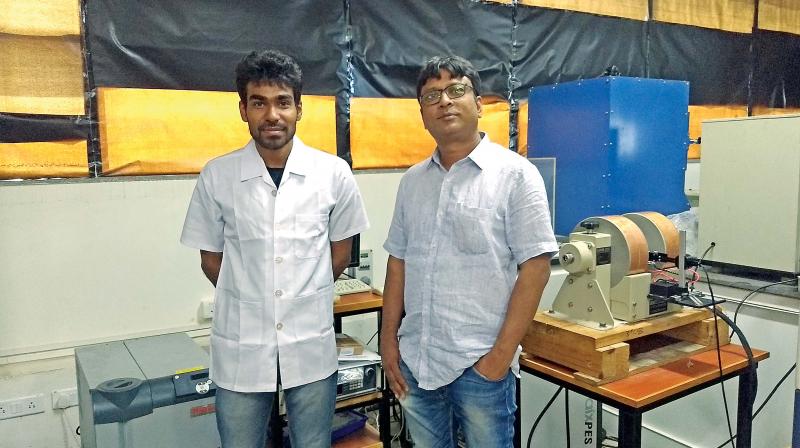IIT-Hyderabad researchers make a mark
New eco-friendly technologies for bio-compatible implants to enable early detections of malfunction.

Chennai: Researchers at the Indian Institute of Technology Hyderabad are working on developing new technologies for bio-compatible medical implants. Medical implants are devices or tissues that are placed inside or on the surface of the body. They are intended to replace missing body parts, deliver medication, monitor body functions, or provide support to organs and tissues. While some implants are made from skin, bone or other body tissues others are made from metal, plastic, ceramic or other materials.
Replacement surgeries including knee, hip and other bone replacements are becoming more prevalent in India with about four crore patients in 2018 alone, mostly above the age of 60 undergoing total knee replacement surgeries. While the expected durability of the implant is up to 20 years, early failure and sometimes, even immediate failure of the implant is observed. The common solution to detect premature failure of the implant is reverse surgery which is more expensive and painful than first-time surgery.
Implants using ceramic-based materials such as alumina and zirconia are most commonly used in implant surgeries. Despite inherent strength, toughness and fatigue resistance of conventional ceramics these implants face difficulties due to poor biological interaction between ceramic and biological tissues. This can result in complications such as aseptic loosening and infection. This happens due to the lower hardness of the implant and its reaction with the body fluid and organs.
To overcome this problem, the researchers are working on a biocompatible implant with sensing property and high hardness. They have found that an eco-friendly, hard ferroelectric/ piezoelectric material implant will be a good substitute for ceramic or steel- based implants.
The researchers have further shown that the piezoelectric/ferroelectric material can detect changes in mechanical energy due to its dimensional change during the functional period and that reducing particle size of the ferroelectric material results in improvements in mechanical properties without compromising on their electrical characteristics.
The innovation by IIT Hyderabad researchers will enable early detections of malfunction through non-invasive monitoring and diagnosis. This will help patients avoid reverse surgery. The study is being led by Dr Saket Asthana, Head Professor, Advanced Functional Materials Laboratory, Department of Physics, IIT Hyderabad. His team is studying lead-free ferroelectric ceramics for use in orthopaedic implants.
Speaking about the practical applications of his research, Dr Saket Asthana said, “Most importantly, this eco-friendly material is synthesized by normal solid-state reaction method instead of a sophisticated technique, which may reduce the cost of processing of this material. This finding can show the pathway of using this kind of ceramics in prosthetic applications.
Extensive research in collaboration with the medical team is necessary to come out with a real-time and practical application of these materials.” Their work has recently been published in the Journal of American Ceramic Society.

